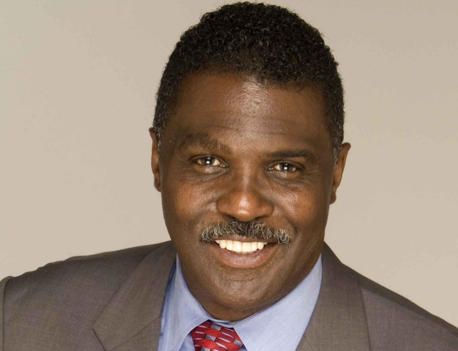By Glenn Ellis
For years, I have written, weekly, on matters of health that disproportionately impact our community, in typically negative ways.
It’s not unusual to draw on my observations and interactions with many people during my travels from throughout the country, and in some cases around the world.
But recently, it got personal!
While attending a community Health Fair, where I was the guest speaker, through the prodding and arm-twisting of the members of Chi Eta Phi, a sorority of black nurses, I acquiesced, and got my blood pressure checked. Much to my total surprised … my pressure was at a dangerously high level!
Not me, I thought! I felt perfectly fine. But there’s a reason they call it “The Silent Killer”.
If a tree falls in a forest and no one is around to hear it, does it make a sound? You’ve probably heard this question before in a philosophy or physics class. But what does it have to do with your health?
Try this: If you have high blood pressure and don’t see any symptoms, do you still have the disease? The answer is YES.
High blood pressure, a disease impacting nearly one in three adults in the United States, is called the “silent killer” because it often shows no signs or symptoms.
It turns out that any blood pressure number over 140 for a top number (the systolic number) is considered Stage One High Blood Pressure. Any bottom number (diastolic) over 90 is likewise bad news. Any top number over 160 is considered Stage Two. Stage Two is the edge of the cliff. At a reading of 160 for a top number, I was at the edge of the cliff, looking over. There is no Stage Three so I guess the next stage is what, death?
A high bottom number is worse than a high top number because the bottom number is your blood pressure at rest.
So if your bottom number is high, the blood is pushing against your artery walls all the time – that’s every second of the day and night, which can cause aneurysm, the pouching out of the artery walls, leading to death.
Most people with high blood pressure will eventually need to take blood pressure medication to help lower it.
If you have high blood pressure, you need to take action to bring it down. This may not mean taking blood pressure medications right away. Your doctor or nurse may prefer, sometimes, that you make some healthy lifestyle changes at first. However, lifestyle changes may not lower your blood pressure enough on their own. If this is the case, then your doctor or nurse may decide that you also need to take blood pressure medicines.
Whether you need to take medications or not also depends on your overall risk of heart disease, stroke or other health problems. Other factors as well as high blood pressure increase your risk, such as: if you have high cholesterol; you smoke; you have diabetes or kidney disease; you have a family history of high blood pressure; or if you have any other medical condition that could affect the health of your heart or blood vessels.
If any of these factors apply to you, your doctor or nurse may decide you need to take blood pressure medicines sooner rather than later. By lowering your blood pressure, you are lowering your overall risk of heart disease and stroke.
It isn’t always easy to accept high blood pressure treatment, especially if you don’t feel ill. However, your medicines are doing an important job in helping to lower your risk of a stroke or heart attack.
Being more active and taking regular exercise lowers blood pressure by keeping your heart and arteries in good condition. Being the right weight lowers blood pressure because your heart doesn’t have to work so hard. Losing weight if you need to will help to reduce your blood pressure and heart strain.
By the way, my story had a happy ending.
I went to the emergency room to get treated, and got my pressure down, then made an appointment and went to see my cardiologist, Dr. Gerald DeVaughn, who prescribed appropriate medications. He told me I would be taking these meds for the next 30 years. I can live with that. Increasing my odds of living another 30 years; not a bad deal.
I can only encourage you all to not miss the next opportunity to get your blood pressure checked when you going from table to table at a health fair, looking for trinkets and cute ink pens.
Hopefully, you will be lucky enough to encounter the loving care of folks like the members of Chi Eta Phi, who I will always believe literally saved my life.
Although white nurses such as Florence Nightingale and Clara Barton are celebrated throughout history, these “Black Nightingales” also deserve to be acknowledged. Their contributions to the medical and nursing professions throughout our communities since 1932 are just as worthy of recognition.
Remember, I’m not a doctor. I just sound like one.
Take good care of yourself and live the best life possible!
The information included in this column is for educational purposes only. It is not intended nor implied to be a substitute for professional medical advice. The reader should always consult his or her healthcare provider to determine the appropriateness of the information for their own situation or if they have any questions regarding a medical condition or treatment plan.
Glenn Ellis, is a Health Advocacy Communications Specialist. He is the author of Which Doctor?, and Information is the Best Medicine. A health columnist and radio commentator who lectures, nationally and internationally on health related topics, Ellis is an active media contributor on Health Equity and Medical Ethics.
For more good health information, visit: www.glennellis.com





